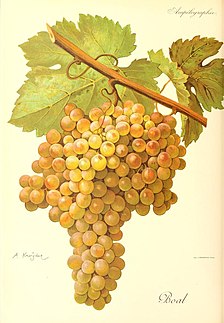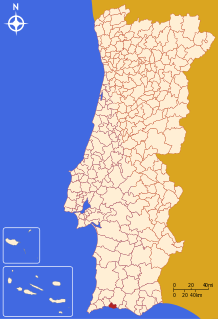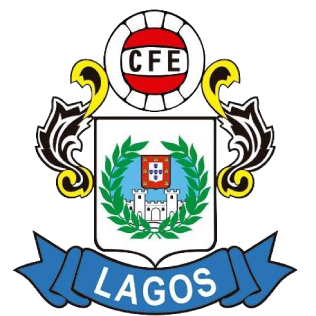Lagos is a Portuguese wine region centered on the Lagos municipality in the Algarve region. The region has Portugal's highest wine classification as a Denominação de Origem Controlada (DOC). Located on the southwestern corner of Algarve, the region is bordered to the east by the Portimão DOC. [1]

Portuguese wine is the result of traditions introduced to the region by ancient civilizations, such as the Phoenicians, Carthaginians, Greeks, and mostly the Romans. Portugal started to export its wines to Rome during the Roman Empire. Modern exports developed with trade to England after the Methuen Treaty in 1703. From this commerce a wide variety of wines started to be grown in Portugal. And, in 1758, one of the first wine-producing regions of the world, the Região Demarcada do Douro was created under the orientation of Marquis of Pombal, in the Douro Valley. Portugal has two wine-producing regions protected by UNESCO as World Heritage: the Douro Valley Wine Region and Pico Island Wine Region. Portugal has a big variety of local kinds, producing a very wide variety of different wines with distinctive personality.

Lagos is a municipality at the mouth of Bensafrim River and along the Atlantic Ocean, in the Barlavento region of the Algarve, in southern Portugal. The population in 2011 was 31,049, in an area of 212.99 km². The main town of Lagos has a population of approximately 22,000. Typically, these numbers increase during the summer months, with the influx of visiting tourists and seasonal residents. While the majority of the population lives along the coast and works in tourism and services, the inland region is sparsely inhabited, with the majority of the people working in agriculture and forestry.

The Algarve is the southernmost region of continental Portugal. It has an area of 4,997 km2 (1,929 sq mi) with 451,006 permanent inhabitants, and incorporates 16 municipalities. The region has as its administrative centre in the city of Faro, where both the region's international airport (FAO) and public university, the University of Algarve, are located. Tourism and related activities are extensive and make up the bulk of the Algarve's summer economy. Production of food, which includes fish and other seafood, different types of fruit such as oranges, figs, plums, carob beans, and almonds, is also economically important in the region. Although Lisbon surpasses the Algarve in terms of tourism revenue, the Algarve is still, overall, considered to be the biggest and most important Portuguese tourist region, having received an estimated total of 7.1 million tourists in 2017. Its population triples in the peak holiday season due to seasonal residents. The Algarve is also increasingly sought after, mostly by central and northern Europeans, as a permanent place to settle. A 2016 American-based study concluded that the Algarve was the world's best place to retire.










